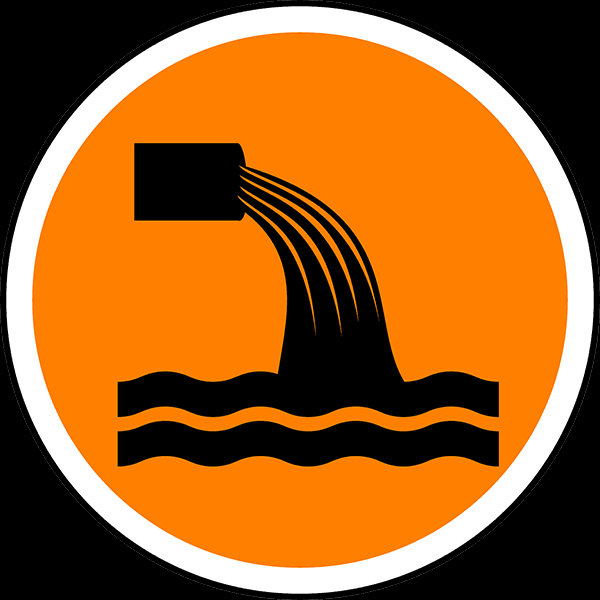Reclaim Waste - Questions
Reclaim Waste - Questions
Blog Article
Reclaim Waste Fundamentals Explained
Table of ContentsReclaim Waste Can Be Fun For AnyoneReclaim Waste - An OverviewRumored Buzz on Reclaim WasteReclaim Waste Fundamentals ExplainedSome Known Facts About Reclaim Waste.
Discover the kinds, events, and types of liquid waste. Residential sewer waste describes the waste and items from a household septic tank. This kind of waste is created by people in homes, colleges, and other structures. This only consists of septic tanks that have a drain area. The correct monitoring and disposal of domestic sewer waste call for liquid waste to be transferred to a sewer treatment plant where the appropriate approaches and equipment are used to detoxify and throw away waste.
Business waste often consists of possible hazards, such as flammable materials or a combination of liquid and strong waste products, and calls for an extra innovative and comprehensive disposal procedure. The disposal of industrial waste normally entails the filtration of waste before transportation to ensure safe and appropriate disposal. Hazardous waste is produced from by-products and overflow of industrial processes and production.
This kind of waste can not utilize the same sewer monitoring transport or processes as septic or industrial liquids. The hazardous waste monitoring procedure calls for the assessment and testing of fluid waste prior to it goes through the disposal procedure (liquid waste disposal). Overflow waste is the liquid waste that comes from runoff and excess stormwater in highly inhabited areas or cities
Runoff waste can trigger contamination and flooding if not dealt with properly. Ensuring appropriate waste monitoring can prevent calamities and decrease environmental harm.
The Ultimate Guide To Reclaim Waste
Get in touch with PROS Solutions today to discover concerning our waste management and disposal services and the proper means to care for the liquid waste you produce.
(https://www.anyflip.com/homepage/imqzz#About)This supposed 'wastewater' is not just a crucial resource but, after treatment, will be launched to our land, waterways or the ocean. Made use of water from commodes, showers, bathrooms, kitchen area sinks, washings and commercial procedures is understood as wastewater.

water used to cool equipment or clean plant and tools). Stormwater, a kind of wastewater, is overflow that flows from agricultural and urban locations such as roof coverings, parks, gardens, roadways, courses and gutters right into stormwater drains, after rain. Stormwater flows unattended directly to regional creeks or rivers, eventually reaching the ocean.
Reclaim Waste Can Be Fun For Everyone
In Queensland, many wastewater is dealt with at sewage treatment plants. Wastewater is carried from residential or industrial sites through a system of drains and pump terminals, called sewerage reticulation, to a sewage treatment plant. Regional governments build, keep and operate most sewage treatment plants. Operators are certified under the Environmental Management Act 1994 to release treated wastewater at an appropriate environmental requirement into rivers.
The Department of Natural Resources encourages city governments concerning handling, operating and maintaining sewage systems and therapy plants. In unsewered areas, local governments may need homeowners to set up private or household sewer treatment systems to deal with residential wastewater from commodes, kitchens, shower rooms and washings. The Division of Natural Resources authorizes the usage of house systems when they are proven to be effective.
Many stormwater gets no therapy. In some brand-new class, therapy of some stormwater to eliminate clutter, sand and gravel has actually started making use of gross toxin traps. Wastewater treatment happens in 4 stages: Gets rid More about the author of solid issue. Larger solids, such as plastics and other objects mistakenly discharged to drains, are eliminated when wastewater is gone through displays.
Makes use of little living microorganisms knows as micro-organisms to damage down and eliminate continuing to be dissolved wastes and fine bits. Micro-organisms and wastes are incorporated in the sludge.
Unknown Facts About Reclaim Waste
Nutrient elimination is not readily available in any way sewer therapy plants since it calls for pricey specialised devices. It is becoming much more usual in Queensland. Clear fluid effluent generated after treatment might still consist of disease-causing micro-organisms. If this effluent is released into rivers such as rivers or the sea, the micro-organisms will at some point pass away out.

This normally means wastewater has actually to be treated or impurities removed prior to it can be released to waterways. A lot of wastewater flows into the sewage system. Under the Act, local governments carry out approvals and licences for ecologically relevant activities (ERAs) involving wastewater releases that may have a local influence. The division administers approvals and licences to Ages involving wastewater launches that may have a local or statewide impact.
Reclaim Waste Things To Know Before You Get This
Otherwise, samples are considered research laboratory evaluation. Usually several examinations are required to establish the levels of each of the different pollutants such as oils, heavy metals and pesticides in water. Surveillance supplies factual details about water quality and can verify that permit problems are being met. The info acquired with tracking supplies the basis for making water quality choices.
Report this page